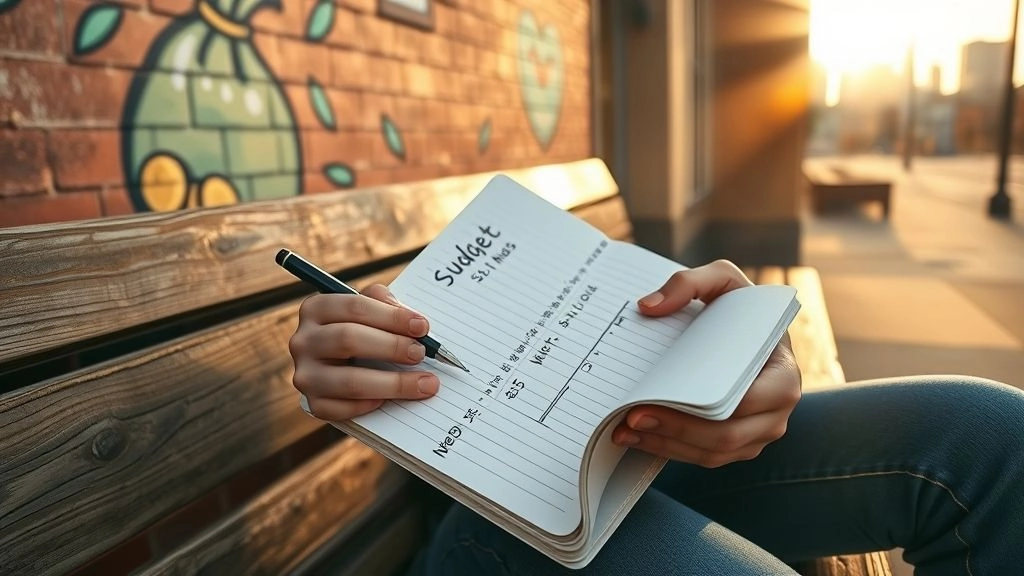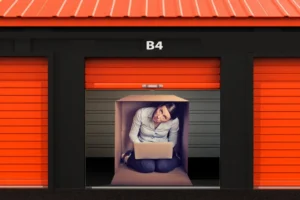Why Money Matters Now?
Let’s get honest for a sec. Have you ever finished the week with a wallet that’s almost empty… and you can’t even remember what you spent your cash on? Been there. (More than once, actually.) And when you’re in high school, juggling clubs, classes, maybe a job, and friends who always want to hit the latest “cool” spot? Money can slip through your fingers before you even know it.
But here’s the thing nobody tells you: what you do with money now sets you up for later—way more than you think. Even if you’re not making much, starting those good habits early? It’s sorta like upgrading to “easy mode” when the harder levels of life show up.
Ready to turn your leftover lunch money into something that actually lasts? Let’s trade confusion for confidence. Here’s my best, honest, slightly messy take on money management tips for high school students. No doom, no gloom… just real talk from someone who got tired of being “always broke.”
Where’s Your Money Even Go?
Have You Tracked a Single Dollar?
First things first: Do you know how much money you actually have—or is it a case of “I think I have $20” until you swipe, and it’s like, “Oops… not enough funds”? (Guilty as charged.)
Let’s keep it real: Money in high school can come from a bunch of places—allowance, birthday cash, odd jobs, or maybe a part-time gig if you’re old enough. But most of us aren’t writing monthly paychecks to ourselves. Stuff just appears… then vanishes.
Here’s a small experiment: This week, write down every single time you get, spend, or lose money. A snack at lunch, late-night Slurpee run, random Venmo from grandma. Doesn’t have to be fancy. Notes app? Napkin with a pencil? Go wild.
| Item | Cost | Was It Worth It? |
|---|---|---|
| Energy drink (after practice) | $3 | Not really (yikes, that taste!) |
| Bus pass | $45/month | Yeah, I need this |
| Movie night with friends | $16 | Definite yes |
This isn’t just for fun—research on spending habits shows most teens don’t really track their cash. So if you do? You’re already ahead.
Budgeting Made Stupidly Simple
Budget? As in, a Spreadsheet?
Everyone makes budgeting sound scary—and it really, REALLY doesn’t have to be. OK, quick metaphor: Think of your money like snacks at a party. If you eat all the pizza right away, there’s nothing left for later. Budgeting = planning so you don’t end up with just celery sticks and regrets.
I swear by the 50/30/20 rule I read in a budgeting guide (high school budgeting advice). It’s as simple as it gets:
- 50% for needs (like bus pass, lunch)
- 30% for wants (yes, bubble tea and movie nights!)
- 20% goes into savings (aka your “future fun fund”)
Can’t save that much? No panic. Even $2 a week counts. Trust me. I started stashing away tip money in high school, literally coins and small bills, and that stash got me a new phone without begging my parents.
Budgeting Quick Tip
Every month, check where your money ACTUALLY went vs. where you meant it to go. No shame, just info. Save the guilt for next time you finish a whole bag of chips solo.
Earn (Even If You’re Not 16 Yet)
“I’m Not Old Enough to Work”—Now What?
Here’s where it gets fun. Not all money has to come from boring jobs or allowances. You’ve got skills! Babysitting, dog walking, selling vintage sneakers online, mowing lawns, tutoring a neighbor—bet you’ve got something you could charge for, even if it’s small.
One of my friends legit made $60 in a weekend teaching two kids in the neighborhood how to use Photoshop. Another started rating restaurants for a community blog (free meals, hello). The point is, get creative—and side hustles don’t have to eat into study time.
And when you finally do get that “real” paycheck? Celebrate. (But maybe not by immediately upgrading to the fanciest headphones. Been there… it’s not always worth it.)
Peer Pressure… But For Your Wallet
Do You Really Need the Latest Thing?
Here’s a biggie: ever wanted something just because everyone else had it? Those viral TikTok water bottles? That limited-edition hoodie only influencers rock?
I fell for it, too. Once spent half my birthday money on a shirt I saw all over Insta—wore it twice, realized it wasn’t even my style. Lesson learned. Don’t let FOMO dictate your cash. (Your future self will thank you—promise.)
Next Time, Pause
Try this: When you want to buy something, put it on a 24-hour “do I actually want this?” list. Nine times out of ten, you won’t even remember it the next day. Money saved.
Savings: Your Secret Superpower
Think $25 a Month Doesn’t Matter?
Let’s bust a myth: saving small is pointless. It’s NOT. Did you know that setting aside just $25 a month = $300 a year? Not bad, right? Do it for 5 years, and that’s $1,500. Enough for a laptop, a chunk of college books, or a spontaneous road trip with friends when you hit 18. (And let’s be real, spontaneous trips are way more fun when you’re not broke.)
| Monthly Amount | 1 Year | 5 Years |
|---|---|---|
| $25 | $300 | $1,500 |
| $50 | $600 | $3,000 |
And many banks offer student savings accounts with zero or barely-there fees. If you need help navigating that? Bring a parent—double check terms, ask about overdraft, and read those statements. (It’s your money. Don’t let random fees eat it.)
Building this habit now makes life WAY easier when you move on to bigger things—like college, which is a whole new money jungle. Sneak a peek at 25 financial tips for college students if you want a preview of what’s next. There are tips in there that totally changed how I handle cash.
Wants Vs. Needs: The Eternal Battle
How Do You Tell the Difference?
I still trip over this sometimes. Here’s my shortcut:
- Food, shelter, connection = need.
- Fancy shoes, extra fries, eighth phone case = want.
Watch out for hype. Ask yourself: will I regret not getting this in a week? Or just in the five minutes after TikTok stops showing it to me?
For more next-level thinking on this, check out Money management tips for young adults. It’s definitely written with college in mind, but lots of those ideas start working (and saving you cash) right now.
Setting (and Smashing) Goals
Do Tiny Goals Even Matter?
YES. Tiny goals are the secret sauce. I once saved up $65 for a used PS4 controller by dropping my weekly soda run for two months. Not glamorous, not dramatic, but it felt like a world-class win at the time. Small wins build up your “I can do this” confidence like nothing else.
Start with something obvious: “I want $20 for the field trip in three weeks.” Work backward. Skip that extra snack, transfer $5 each weekend if you can. Feels so much better than scrambling at the last minute—or, worse, missing out because of cash.
Goal Setting Table
| Goal | Amount Needed | Deadline | How I’ll Save |
|---|---|---|---|
| School trip | $60 | 4 weeks | $15/week (skip snacks) |
| Headphones | $40 | 2 months | $5/week (stash odd-job cash) |
Treat your goals like IRL quests. What’s your next “level up”?
Don’t Get Scammed. Please.
Ever Seen a Deal That Was Just Too Good?
Yup, me too. Quick story: Freshman year, I almost lost $30 on a sneaker “deal” that was basically a sketchy website and a broken heart. Lesson? If it seems too cheap to be real… it probably is.
Check reviews, don’t share info with random strangers, and please don’t follow sketchy links from DMs. Having money is awesome—protect it like you’d protect your phone battery on 1%.
Build That Financial Confidence
Start Learning, Like…Now
No one’s born a money expert. You learn as you go. High school is the best time to start figuring this out. Most schools toss in a financial literacy class somewhere, but if yours doesn’t, there’s always YouTube, TikTok (you can get more than dances), and just—reading your bank statement and asking questions.
And if you want more detailed, college-ready advice, I’ve found 25 financial tips for college students super straightforward, even if you’re not there yet.
Life’s Already Hard… Money Doesn’t Have to Be
Let’s be real. Sometimes you’ll overspend. Sometimes lunch money disappears. Sometimes you’ll forget what you even bought… I’ve lived it, you’re not failing.
But every time you decide to check your balance, jot down an expense, or stash a few bucks “just in case”—that’s you getting smarter. Confession: I only started tracking after bouncing a payment and feeling so embarrassed. If I can go from “forgot I had a bank account” to actually knowing what’s in it? You’re already ahead by reading this.
Here’s my gentle nudge: track your money this week. Set a tiny savings goal. Ask a friend to join you (make it a game, loser buys pizza!). Share a win or a blunder in the comments—I want to hear ’em all.
Money management tips for high school students aren’t magic, just a messy, honest start to a less stressful, more independent future. If you’re still here, you’re ready for it. Let’s make “always broke” a thing of the past—one small, possibly-forgotten expense at a time. Go get it.













